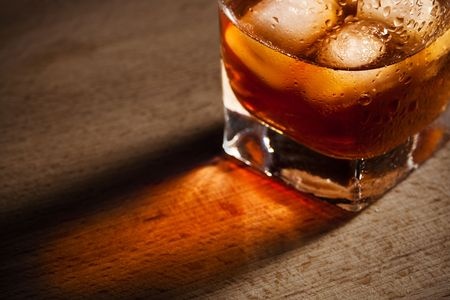Manuka Honey Whiskey: The Product of Hard Times
July 31, 2016
Honey News, Manuka Honey , Honey
No matter your drink preference, it’s hard to deny that whiskey has grown in popularity in recent years or even decades, from micro-distilling, experimental grains, a revived cocktail culture, and an all-around growing appreciation of the brown spirit. Such facts can be said about US whiskeys as wells as that of Australia and New Zealand whiskeys, which until recent years had had relatively downtrodden industries. Even though these countries have done well (Australia’s Sullivan’s Cove French Cask won a “World’s Best Malt Whisky” from Whisky Magazine in 2014; New Zealand’s Thomson won double gold for its 18-year-old Single Cask Single Malt at the World Spirits Competition in 2014), it’s been a long journey for both countries to make back their marks after long dry spells.
Australia is no stranger to whiskey production: during the 19th and part of the 20th centuries, it was the fourth-largest producer in the world, but all distilleries were closed by the 1980s, with Tasmania actually banning the practice way back in 1839. It was about 150 years before the industry got back up again when Bill Lark worked Tasmania’s soil, strong barley crops, good water, easily sourced highland peat—and overcame legal hurdles in 1992 by establishing Lark Distillery. Other craft distillers followed suit, and now there are a double-handful of distilleries in Tasmania and several more on the mainland, bringing Australia up to first-class production in less than 25 years.
When it comes to New Zealand, the birthplace of Manuka honey, it’s had just as many problems as its Aussie neighbor. Crown was established in 1870 as a legal distillery that went under in only three years due the great weight of government regulations, and the same fate quickly befell the New Zealand Distillery. Jump ahead to about one century later, and the desire for legal whiskey started gaining traction when Willowbank (or Wilson’s Distillery) opened in 1969. Purchased by Seagram in the 1980s, Willowbank improved in quality, production, and distribution, but upon selling to Fosters in 1997, the doors were closed.
That is, until the New Zealand Whiskey Company of Oamaru bought most of the leftover stock at auction. From there, it has been releasing award-winning, aged spirits for the past few years. Thomson’s, which sells some of the Willowbank stock under its own label, opened a distillery in 2014 and hopes to release a premium single-malt. And the Kiwi Spirit Distillery in Takaka sells a six-year-old single-malt, aged in honey-mead barrels they’ve dubbed Waitui Manuka Honey Whiskey. Though New Zealand isn’t in the same league as Australia, it certainly is on its way.
BY and by, whiskey lovers who’ve never had the chance to taste Australian whiskey or even Manuka honey whiskey have something to look forward to. With both Oceanic countries kicking up production, the prospects on that front are looking promising indeed, as they might deserve after a literal century slowing each country down.
Copyright: terex / 123RF Stock Photo


.jpg)



